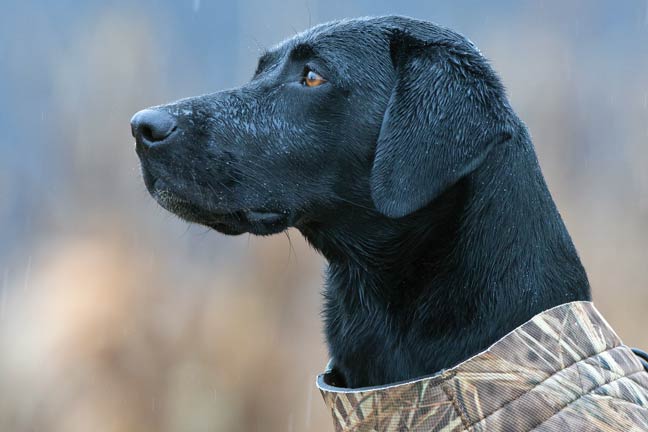September 30, 2016
By Tyler Shoberg
Any reputable dog breeder will tell you: great retrievers come from great genes. That's why they don't haphazardly mix dogs and pray the litter produces fine hunters.
Instead, through rigorous hunt tests, trials, field prowess and health clearances, a breeder will meticulously pair a male and female to create the next generation of bird-crazed duck dogs.
At least, that's the idea.

Advertisement
On paper, genetics are simple, but it's not that cut-and-dried. There are no guarantees. Breeders know that by pairing the best of the best, they have the greatest chance of creating puppies that express the same desirable traits exhibited by their parents — color, size, biddability, nose and drive, for instance — while also eliminating the possibility of suffering from genetic ailments such as hip dysplasia, and eye or thyroid problems.
However, as they juggle all these aspects, invariably something can slip through the cracks. In the case of hard-charging, high-horsepower field-trial Labs, it's one trait that may be the most desirable among owners: a loving disposition.
I've heard more than one breeder say, "you can't have it all." There's no such thing as the perfect retriever, and if you're looking to gain in one area, you'll likely lose in another. If the goal is to win ribbons or pass tests, and if speed, stamina, and the ability to win are the only things put into context, it's not unlikely that other qualities may be inadvertently brushed aside.
Advertisement
Researcher Linda Van Den Berg investigated aggression among golden retrievers — yeah, those dogs that pretty much epitomize "man's best friend."
Her goal was to discover whether impulsive aggressive behavior was inherited in those few goldens who exhibit it and if so, isolate the gene responsible. Van Den Berg found impulsive aggression is easily passed on, although she was unsuccessful in isolating the exact gene responsible.
Yes, aggression can be bred, even by accident. It's easy to forget that the loving, obedient dog by your side was, many, many generations ago, a wild canine. Through selective breeding, humans have molded companions that run the gamut of functionality and form.
And while we continue to perfect upon these biological marvels, it's not unlikely that those natural, wild instincts we've tried to beat into submission won't come crawling back into dominance if left unchecked.
It's ironic, really, that one of the most revered qualities of Labradors might be getting bypassed and even overshadowed; it's the opposite for breeds with aggressive reputations, such as Chesapeake Bay retrievers and German wirehaired pointers.
Reputable Chessie and wirehair breeders are well aware of their ingrained dispositions, and go above and beyond to assure temperament is at the forefront when pairing for prospective litters.
The truth is, aggressiveness can be a factor in any breed. It's up to breeders, and especially dog owners, to research and pick the dogs that best fit their family and hunting styles. After all, even with a few months of waterfowl season, a retriever is a family dog first.

